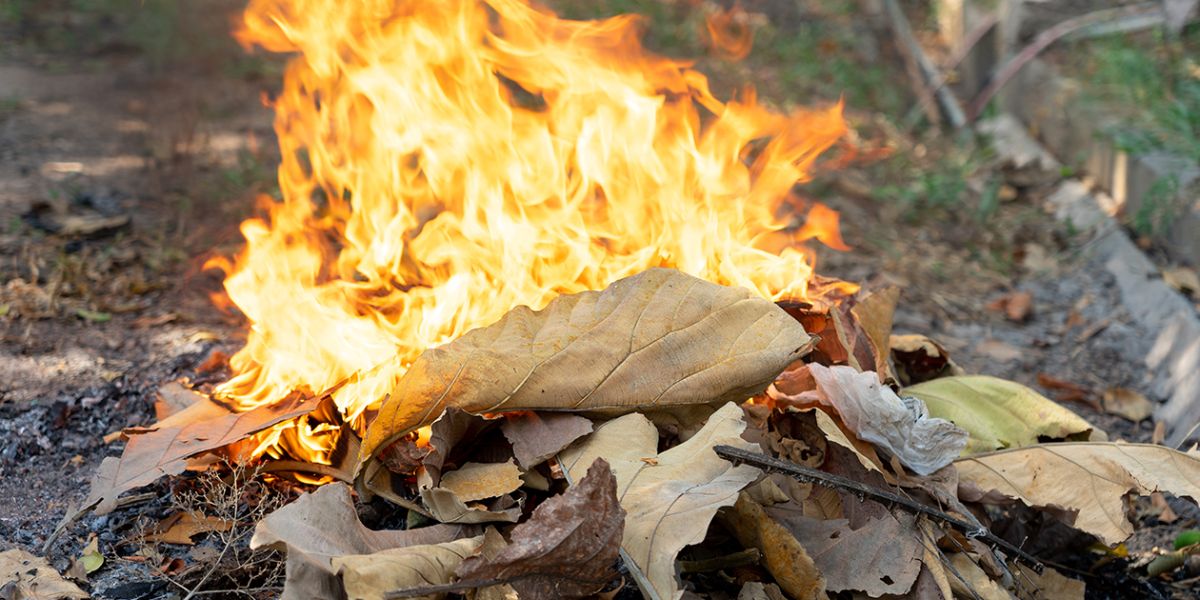In Tennessee, it is usual to burn things on private property, whether it is to get rid of yard waste, clear land, or just have a campfire in the backyard.
However, it is necessary to be aware of the state’s fire rules in order to make sure that your actions are both legal and safe. This is a summary of the laws in Tennessee regarding burning things on your own land.
Regulations for Open Burning
The Tennessee Department of Agriculture’s Division of Forestry is responsible for regulating open burning in Tennessee.
The purpose of the laws is to reduce the risk of fires and the amount of air pollution. Open burning is when an outdoor fire releases smoke directly into the air without going through a chimney or exhaust system.
Residents are typically permitted to burn natural materials like wood, brush, and leaves on their own property. However, depending on the sort of material being burned and your region, there are restrictions and standards that you must adhere to.
When do you need a burn permit?
You are required to get a burn permit before igniting any outdoor fire during the official wildfire season, which lasts from October 15 to May 15.
You can get a burn permit for free by either going online or by getting in touch with your local forestry office. You need to have these licenses in order to burn leaves, branches, or other debris, but you do not need them for small flames such as campfires or cooking fires.
The purpose of the permit system is to minimize the chances of wildfires by making sure that burning activities are carried out in a safe manner. If you do not get a permit during the designated season, you may have to pay a fine or face other consequences.
Burning is not allowed.
In Tennessee, there are several items that cannot be burned because of worries about the environment and people’s health. These are:
- Tires Plastics
- Waste from construction
- Trash from the home
- Dangerous waste
It is against the law to burn certain goods, and doing so can lead to serious consequences, such as fines from the Tennessee Department of Environment and Conservation.
Your Rights in Pennsylvania: What to Do If Your Car Is Towed from Private Property
Local Laws and Limitations
Many counties and towns have their own regulations regarding open burning, in addition to the laws that are in place at the state level.
For instance, urban regions frequently have harsher limits or outright bans on burning because of the higher population density and worries about air quality. It is essential to verify local ordinances to make sure you are following the rules before setting a fire on your property.
Burning Safety Guidelines
It is important to take safety measures to avoid accidents and wildfires, even when burning is allowed. Here are some important suggestions:
- Keep an eye on the weather: Do not burn on windy days or on days when the air is very dry.
- Get the area ready: Remove any materials that could catch fire from the area around the burn site.
- Keep water close by: Make sure you have a garden hose, a pail of water, or a fire extinguisher nearby.
- Keep an eye on the fire: You should never leave a fire alone.
- Extinguish completely: Make sure the fire is absolutely out before leaving the area.
Your Rights in Texas: What to Do If Your Car Is Towed from Private Property
Consequences for Burning Illegally
If you break Tennessee’s burning regulations, you could face severe penalties. These include fines, legal action, and accountability for damages if an unauthorized fire causes injury to property or individuals.
Final Thoughts
In Tennessee, burning on your property is usually allowed, but it comes with certain obligations. You may enjoy the benefits of open burning while keeping yourself and your community safe by understanding the requirements and acquiring the proper permissions.
Before starting a fire, you should always verify the laws and regulations in your state and local area, and you should always prioritize safety.








